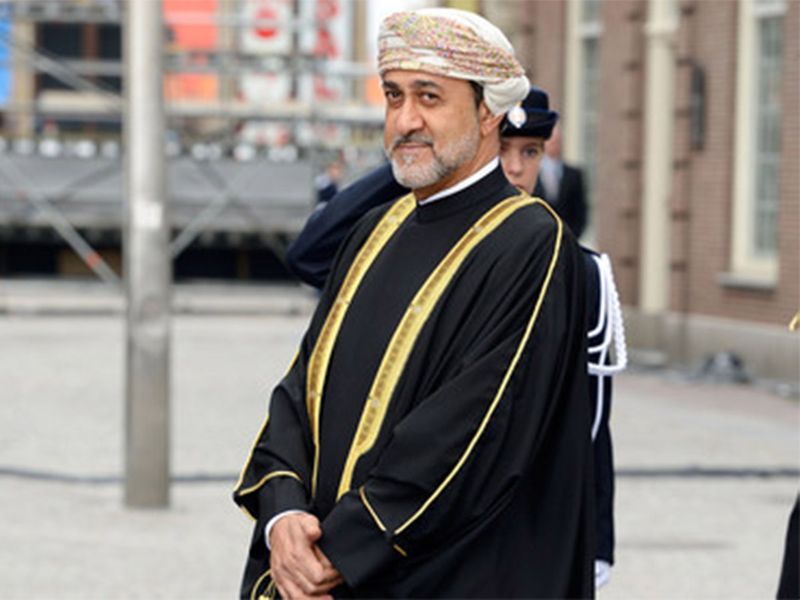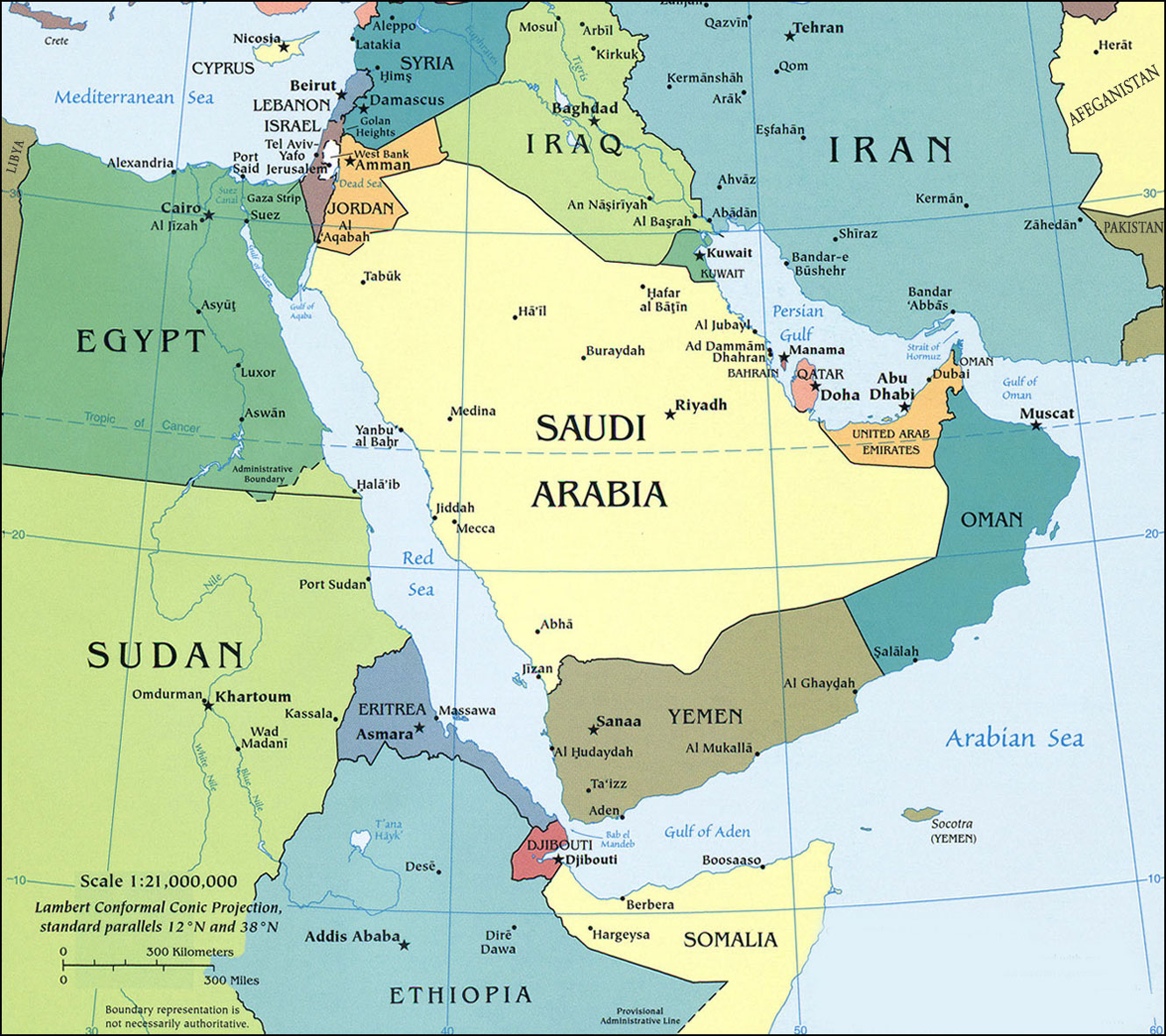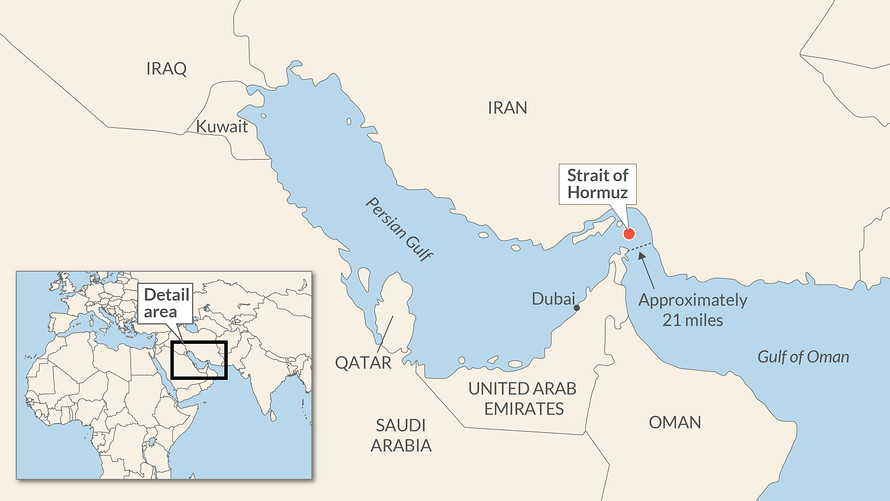World #2 – Oman’s Sultan Qaboos, the Arab world’s longest-serving ruler
Tuesday's World Events — Posted on January 14, 2020
(by Lisa Barrington, Davide Barbuscia, Reuters) DUBAI — Sultan Qaboos bin Said, who died late on Friday, transformed Oman during his 49-year reign from a poverty-stricken country torn by dissent into a prosperous state and an internationally trusted mediator.
He became sultan in July 1970 after deposing his father in a bloodless coup with the aim of ending the country’s isolation and using its oil revenue for modernization and development.
Qaboos, 79, who was divorced and had no children, never publicly named a successor but secretly recorded his choice in a sealed letter should the royal family disagree on the succession line. The Omani constitution says the sultan should be a member of the royal family as well as “Muslim, mature, rational and the legitimate son of Omani Muslim parents.”
Qaboos’ cousin Haitham bin Tariq al-Said was named sultan on Saturday after the high military council called on the ruling family council to choose a successor. The family had followed Qaboos’ written recommendation, believing in “his wisdom and vision,” a military council statement said.
“The family went down the least controversial path, favouring unity instead of a drawn-out discussion that could have been marked by interference from Saudi Arabia and the United Arab Emirates,” said Cinzia Bianco, a research fellow at the European Council on Foreign Relations.
“[Haitham’s] biggest challenges will be to get buy-in from local economic elites on reforms and the cooperation and trust of ordinary Omanis, because financial sacrifices will be needed.”

Born in 1954, Sultan Haitham Bin Tariq was Minister of Heritage and Culture of the Sultanate of Oman. He is the cousin of Sultan Qaboos Bin Saeed.
State media did not disclose the cause of death. Qaboos, who has dominated decision making in the Gulf state for decades, had been ailing for years and was in Belgium in December for treatment.
A three-day period of official mourning in public and private sectors has been declared. Neighbouring Gulf states also declared three days of mourning.
Sultan Qaboos healed old rifts in a country long divided between a conservative tribal interior and seafaring coastal region. He became known to his countrymen as “the renaissance,” investing billions of dollars of oil revenues in infrastructure and building one of the best-trained armed forces in the region.
While he [tolerated] no dissent, fighting off Dhofar rebels with Britain’s help, Qaboos ruled with a lighter hand than many Gulf leaders and transformed the country from a backwater with just six miles of paved roads where slavery was legal into a wealthy modernized state.
He charted an independent foreign policy, not taking sides in a power struggle between Saudi Arabia and Iran, or in a Gulf dispute with Qatar. Muscat also kept ties with both Tehran and Baghdad during the 1980–88 Iran–Iraq War, and with Iran and the U.S. after Iranian militants took 52 Americans hostage following the Islamic Revolution in Iran in 1979.
Oman helped to mediate secret U.S.-Iran talks in 2013 that led to the Obama-led international nuclear pact two years later, which the majority of Americans opposed.
Sultan Qaboos also met Israeli Prime Minister Benjamin Netanyahu in October 2018, when he invited him to visit Oman. While other Gulf states have made overtures to Israel, none of their leaders have openly met with Netanyahu.
Qaboos, the eighth ruler of the al-Said dynasty that governed Oman since 1744, was born on Nov. 18, 1940 in Dhofar.
In 1958, he headed to England to complete his education, strengthening historic ties between Britain and the Omani royal family. He studied for two years at the Royal Military Academy in Sandhurst and served six months in the British army in West Germany, returning to England in 1962 to study local government.
From 1964-70, Qaboos was confined to the royal palace in Salalah and denied any role in running Oman. He had become disenchanted with his father’s methods and skeptical of the army’s ability to defeat Dhofari rebels.
When oil exports began in 1967, Sultan Said, accustomed to tight financial constraints, was reluctant to spend on development.
Britain, with considerable clout then over Gulf rulers, helped Qaboos overthrow his father in a palace coup on July 23, 1970. Sultan Said was forced to abdicate after some resistance and spent the last two years of his life in exile in England.
The new sultan, then only 30 years old, [seized control of] a country with little infrastructure, few skilled administrators and none of the basic institutions of government.
Qaboos gradually asserted his authority by taking over the role of prime minister and the ministries of finance, defense and foreign affairs, which he retained throughout his reign.
He fought Dhofar rebels with help from Britain, Jordan and Iran. Through military advances and offering rebel leaders state jobs, Qaboos ended the revolt within six years of taking office.
Iran’s 1979 Islamic Revolution directed Qaboos’ attention to the Strait of Hormuz, through which almost a fifth of global oil passes. He pledged to keep the strait open and in 1980 signed a deal to let U.S. forces use Omani facilities for emergencies.
Background
When the “Arab Spring” protests started to threaten - and eventually topple - the leaders of Tunisia and Egypt in 2011, Qaboos took note and defused his own potential bombshell, as protests broke out in Oman, with promises of jobs and reforms.
He sacked more than a third of the cabinet, created thousands of public sector jobs and paid a dividend to the unemployed, which the IMF said amounted to a quarter of Omanis.
However domestic challenges remained with high unemployment and the state increasingly relying on external borrowing as oil prices fell, pushing its credit rating to junk status.
“Sultan Qaboos had such charismatic authority and became so synonymous with Oman as a modern nation-state that it will naturally be difficult for any successor to replicate that, at least at the beginning,” Kristian Coates Ulrichsen of the Texas-based Rice University’s Baker Institute told Reuters.
Sultan Qaboos's successor is his cousin:
- Haitham bin Tariq al-Said, a sports enthusiast, held the position of undersecretary of the ministry of foreign affairs for political affairs before becoming the minister of heritage and culture in the mid-1990s.
- He was also the first head of Oman's football federation in the early 80s.
- In a televised speech, Haitham promised to uphold Muscat’s policy of friendly relations with all nations. “We will continue to assist in resolving disputes peacefully,” he said.
The new sultan inherits strained state finances and high unemployment in the indebted oil producer, as well as the task of balancing the geopolitical interests of his Middle Eastern neighbours.
Haitham’s appointment at the expense of younger candidates with military backgrounds, however, appears to signify a desire for continuity rather than disruption in both domestic and foreign policy.
“The wild card is whether any of Oman’s neighbors might try to pressure the new sultan as he settles into power - just as the Saudis and Emiratis tried to pressure Emir Tamim in the weeks and months after he assumed power in Qatar in 2013," Kristian Coates Ulrichsen of Texas-based Rice University’s Baker Institute told Reuters.
Simon Henderson, director of the Bernstein Program on Gulf and Energy Policy at the Washington Institute for Near East Policy said:
"The immediate danger, perhaps, is that regional players may try to influence the outcome of succession or the chosen new leader. The UAE has an interest, as does Saudi Arabia. Iran will likely be opportunistic in how it plays its cards."
(from the UK Guardian with Reuters and AFP and France24)
Read Secretary of Defense Mark Esper’s statement on the passing of Sultan Qaboos of Oman at defense.gov.


